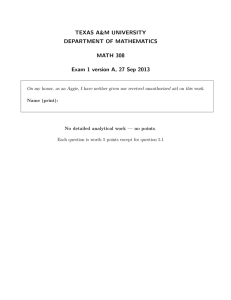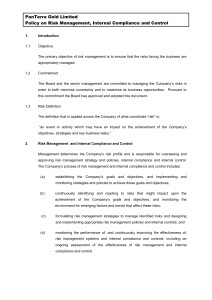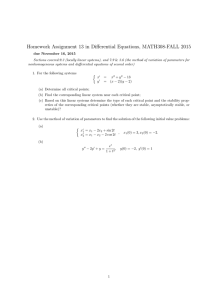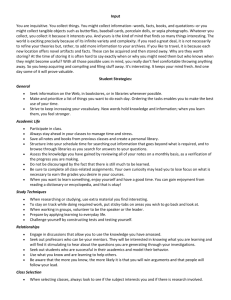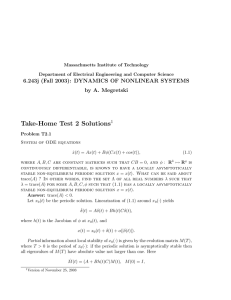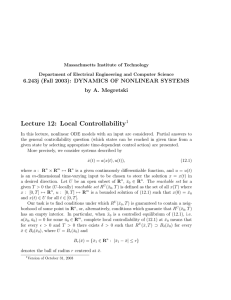Massachusetts Institute of Technology
advertisement
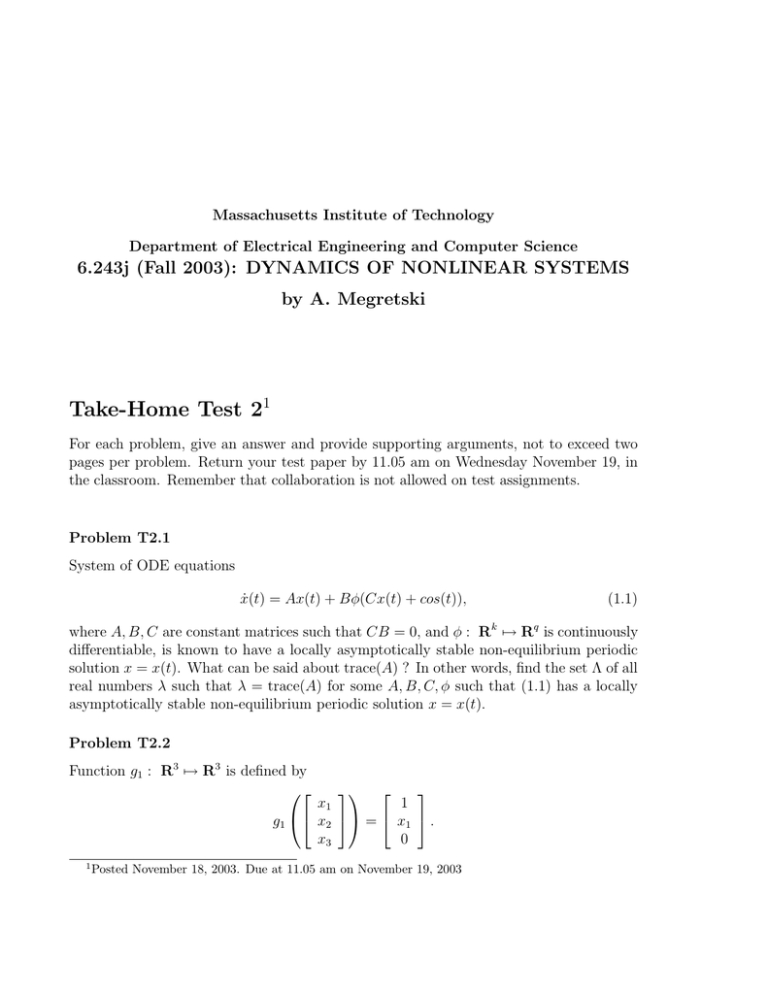
Massachusetts Institute of Technology Department of Electrical Engineering and Computer Science 6.243j (Fall 2003): DYNAMICS OF NONLINEAR SYSTEMS by A. Megretski Take-Home Test 21 For each problem, give an answer and provide supporting arguments, not to exceed two pages per problem. Return your test paper by 11.05 am on Wednesday November 19, in the classroom. Remember that collaboration is not allowed on test assignments. Problem T2.1 System of ODE equations ẋ(t) = Ax(t) + B�(Cx(t) + cos(t)), (1.1) where A, B, C are constant matrices such that CB = 0, and � : Rk �� Rq is continuously differentiable, is known to have a locally asymptotically stable non-equilibrium periodic solution x = x(t). What can be said about trace(A) ? In other words, find the set � of all real numbers � such that � = trace(A) for some A, B, C, � such that (1.1) has a locally asymptotically stable non-equilibrium periodic solution x = x(t). Problem T2.2 Function g1 : R3 �� R3 is defined by ⎨⎦ ⎣� ⎦ ⎣ x1 1 g1 ⎩� x2 ⎤� = � x1 ⎤ . 0 x3 1 Posted November 18, 2003. Due at 11.05 am on November 19, 2003 2 (a) Find a continuously differentiable function g2 : R3 �� R3 such that the driftless system ẋ(t) = g1 (x(t))u1 (t) + g2 (x(t))u2 (t) (1.2) is completely controllable on R3 . (b) Find continuously differentiable functions g2 : R3 �� R3 and h : R3 �� R such that →h(¯ x) = ∈ 0 for all x¯ � R3 and h(x(t)) is constant on all solutions of (1.2). (Note: function g2 in (b) does not have to be (and cannot be) the same as g2 in (a).) (c) Find a continuously differentiable function g2 : R3 �� R3 such that the driftless system (1.2) is not completely controllable on R3 , but, on the other hand, there exists no continuously differentiable function h : R3 �� R such that →h(¯ x) = ∈ 0 for 3 all x̄ � R and h(x(t)) is constant on all solutions of (1.2). Problem T2.3 An ODE control system model is given by equations ⎞ ⎠ ẋ1 (t) = x2 (t)2 + u(t), ẋ2 (t) = x3 (t)2 + u(t), ⎧ ẋ3 (t) = p(x1 (t)) + u(t). (1.3) (a) Find all polynomials p : R �� R such that system (1.3) is full state feedback linearizable in a neigborhood of x̄ = 0. (b) For each polynomial p found in (a), design a feedback law u(t) = K(x1 (t), x2 (t), x3 (t)) = Kp (x1 (t), x2 (t), x3 (t)) which makes the origin a locally asymptotically stable equilibrium of (1.3). (c) Find a C � function p : R �� R for which system (1.3) is globally full state feedback linearizable, or prove that such p(·) does not exist.
